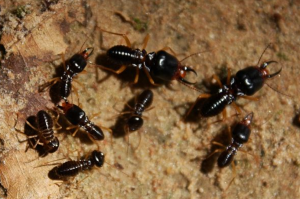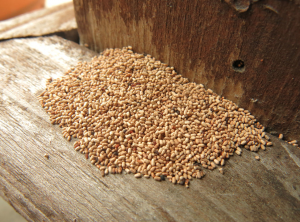Pests’ Most Common Hiding Places in Your House
Do you have a pest problem in your home? Whether it’s ants, termites, or rodents, the critters can be tough to get rid of. There are various issues they can cause but one of the main ones is the fact that once the insects or tiny animals make your house, apartment, or condo their residence they’ll start breeding.
The Problem With Pests
One of the best ways to deal with pests is to prevent the problem before it starts. That includes knowing what causes the infestations in your home, to begin with. There are several possible ones and here are some of the most common ones:
1. Siding Contacting Soil
 This is an issue because soil can rot the siding. That, in turn, can cause all sorts of problems like carpenter ants or termites. The way to avoid this problem is to dig way soil/mulch so it doesn’t contact the siding.
This is an issue because soil can rot the siding. That, in turn, can cause all sorts of problems like carpenter ants or termites. The way to avoid this problem is to dig way soil/mulch so it doesn’t contact the siding.
2. Gaps Around Crawl Space
When this happens, the rodents can get to the house’s crawl space. They can do various kinds of damage including to the insulation, plastic barrier, and wiring. The rodents often aren’t noticed until they get into the home’s living space.
3. Debris Plugging Gutters
This is an issue because water overflows the gutters then run down the siding. This results in decay and can attract various kinds of pests. Another place where mosquitos often like to live is gutters where there’s standing water. This is another issue to consider getting rid of animals.
4. Item Stored Against Side of House
This includes various items including firewood. This is an issue because firewood and similar items create areas where tons of insects can live. That includes carpenter ants and others. It’s important that wood and other items are stored away from the house’s side.
5. Tree/Shrub Branches Touching Roof/Siding
In this case, the ants or mice/rats use the branches to avoid insecticide/rodenticide treatments. The tree branches then become a kind of highway they can use to get to your house’s roof. Another common cause is shrubs that contact your home’s siding. The shrubs can trap in moisture, which can, in turn, cause several pests to get inside your home.
6. Soil/Much Graded Toward House
When water flows against your home’s siding, this can cause decay and might flood a basement. The way to fix the problem is to grade away soil/mulch from the house so there’s no water buildup.
7. Downspouts are Disconnected
This is an issue because water is draining on or under it. This results in moisture/decay issues. That, in turn, can result in pest infestations, which is likely a situation you’ll want to avoid. It’s important for downspouts to be connected properly to help avoid this problem.
8. Missing/Damaged Vent Screens
This involves soffit vent screens. This is an issue because rats, birds, and bats can then enter the house’s attic. This can cause issues like odor, damage, and even health issues. It’s better to use galvanized hardware cloth to re-screen the problem areas.
Signs of Pests in Homes
It’s important to know some of the main signs of animals in your home. It’s advisable to hire a professional exterminator since they’ll have the knowledge, experiment, and equipment to get rid of the pests. Before you take that step, it helps if you know some of the signs that big numbers of bugs or rodents are living in your home. Here are some common signs:
1. Damage
This is a common sign of rodents because they chew on just about anything. The mice/rats do that to wear down their teeth that are growing constantly. Rodents will chew on just about anything including insulation, plastic, woo d, wire, and pipe. Look for signs of gnawing on items like floorboards and furniture.
d, wire, and pipe. Look for signs of gnawing on items like floorboards and furniture.
2. Smell
Try to pick up a musky smell because it might be the smell of pests in your home. It has a hint of ammonia so it’s quite easy to pick up. You can pick up these scents in an area like kitchens and basements.
3. Droppings
It’s not a fun topic but it’s one sign that your home has an animal problem. It could be urine or feces. Besides being smelly and messy it can cause health issues.
4. Noise
Pests aren’t “loud” but they’re not silent either. If you listen to the walls of your home you can hear if there’s any movement in the home’s wall cavities. You should also check out the ceiling/attic as there could be bugs in those spaces.
Common Places for Pest Nests
The key is to know where to look for animal nests. There are various locations where you can find them. The nests tend to be in dark areas of the home and place where there’s less foot traffic. That includes in wall cavities, behind appliances, and inside the insulation. Try to pick up the musky scent of nesting.
